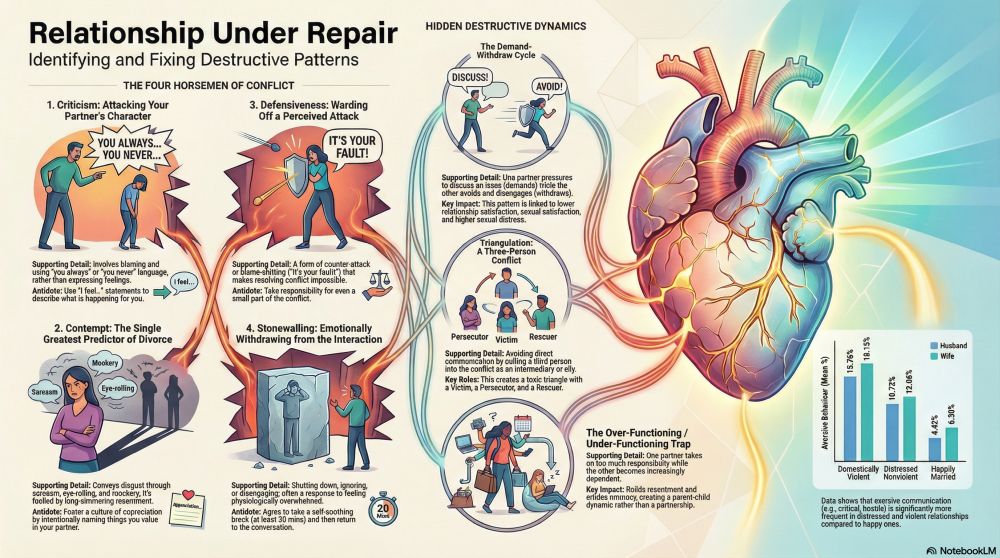The act of snubbing someone in favour of a smartphone, often called “phubbing”, has quietly become one of the most pervasive and underestimated threats to modern romantic relationships. A large meta-analysis of 52 studies involving 19,698 participants makes the picture clear: partner phubbing consistently erodes relationship satisfaction, trust, and emotional connection across cultures and age groups.
The Scope of the Problem
Research shows phubbing is now a common behaviour with serious consequences. Among college students, 65% report experiencing it. For young adults aged 18 to 25, 52% regularly encounter this behaviour from their partners. Even among married couples, 38% experience phubbing, with 28% saying it is a significant problem.
The most striking finding is that 46% of U.S. adults say they have been phubbed by a partner, yet only 23% see it as a real relationship issue. This shows a massive gap between how often it happens and how seriously people take it.
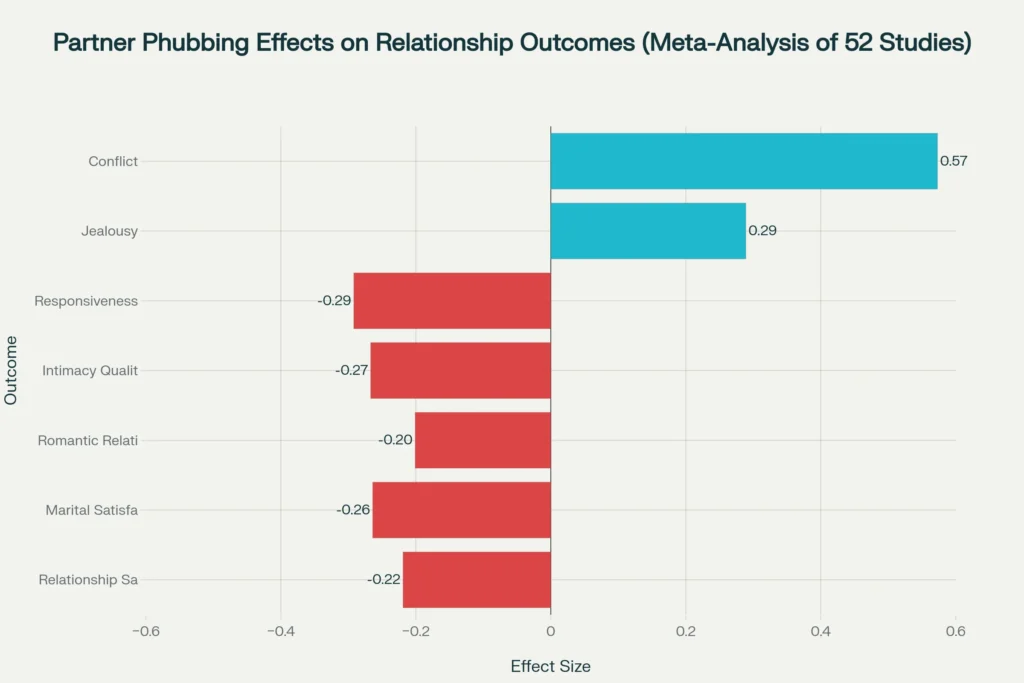
The Meta-Analytic Evidence
The biggest study of its kind, covering almost 20,000 participants, confirms phubbing’s destructive impact.
Relationship Satisfaction Suffers Most
Across 30 studies with 9,040 people, partner phubbing shows a clear negative link to relationship satisfaction (r = -0.219). The effect is stronger in marriages (r = -0.264), suggesting it hits committed relationships harder.
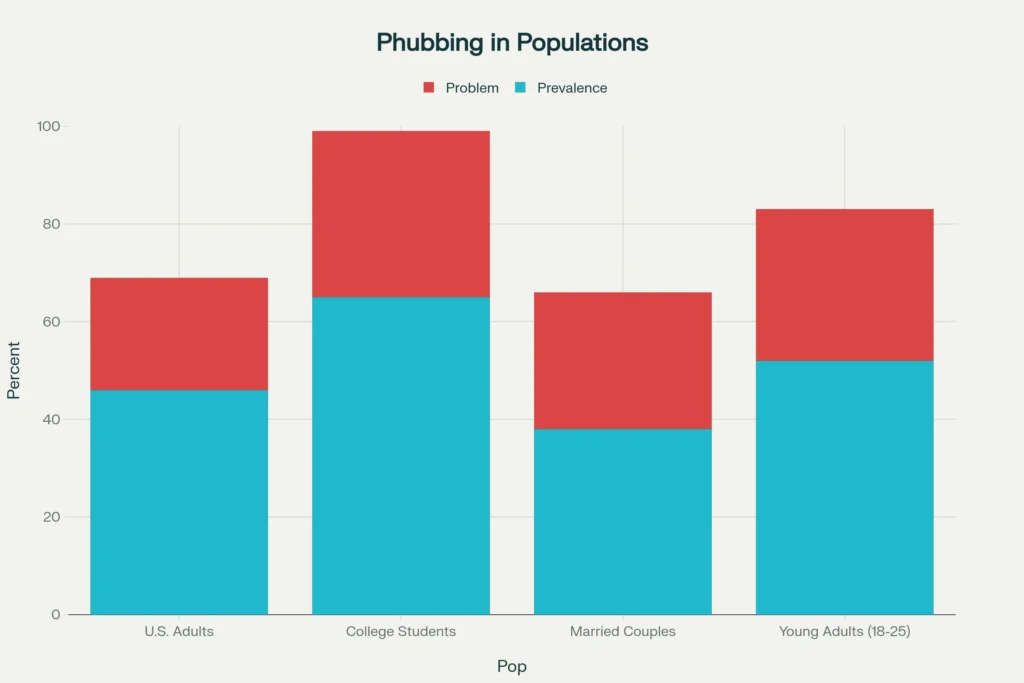
Quality and Intimacy Decline
Romantic relationship quality drops notably (r = -0.201) when partners engage in phubbing. Intimacy quality takes an even bigger hit (r = -0.267), showing that this behaviour interferes with deep emotional and physical connection.
Partner responsiveness, a cornerstone of healthy relationships, shows the strongest negative correlation with phubbing (r = -0.292). This matters because responsiveness is essential for secure attachment and emotional safety.
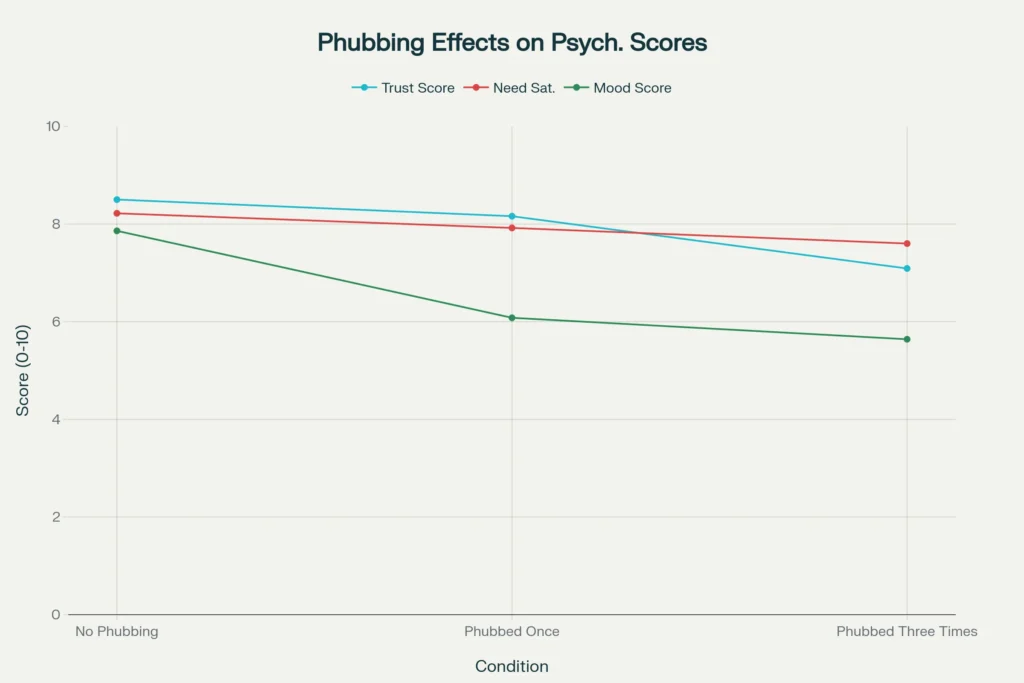
Conflict and Jealousy Rise
Phubbing does not just reduce positive qualities; it increases negative ones. Conflict has a very strong positive correlation with phubbing (r = 0.573), meaning couples who phub each other argue far more.
Jealousy also rises significantly (r = 0.289), creating a cycle where phone use breeds suspicion and insecurity, leading to even more problems.
Gender Differences
Men are more affected when phubbed by women, with a correlation of -0.47 compared to women’s -0.12. Men are also 68% more likely to phub than women, who make up 32% of phubbers. Men report higher awareness of being phubbed, scoring 3.10 out of 5 compared to women’s 2.89.
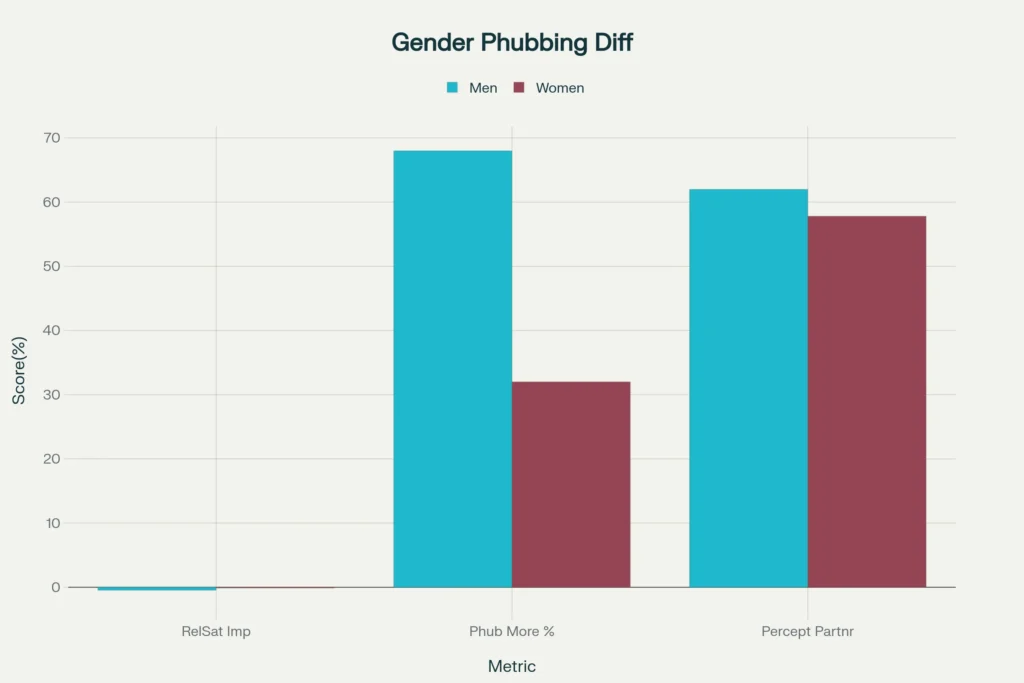
Why People Phub
The strongest predictor is media addiction (r = 0.492). People who have problematic smartphone or social media habits are far more likely to phub.
Attachment anxiety shows a moderate link (r = 0.285), suggesting insecurely attached individuals may turn to phones for reassurance. Depression (r = 0.245) and loneliness (r = 0.220) are also linked, indicating that people may use devices to regulate mood but damage their relationships in the process.
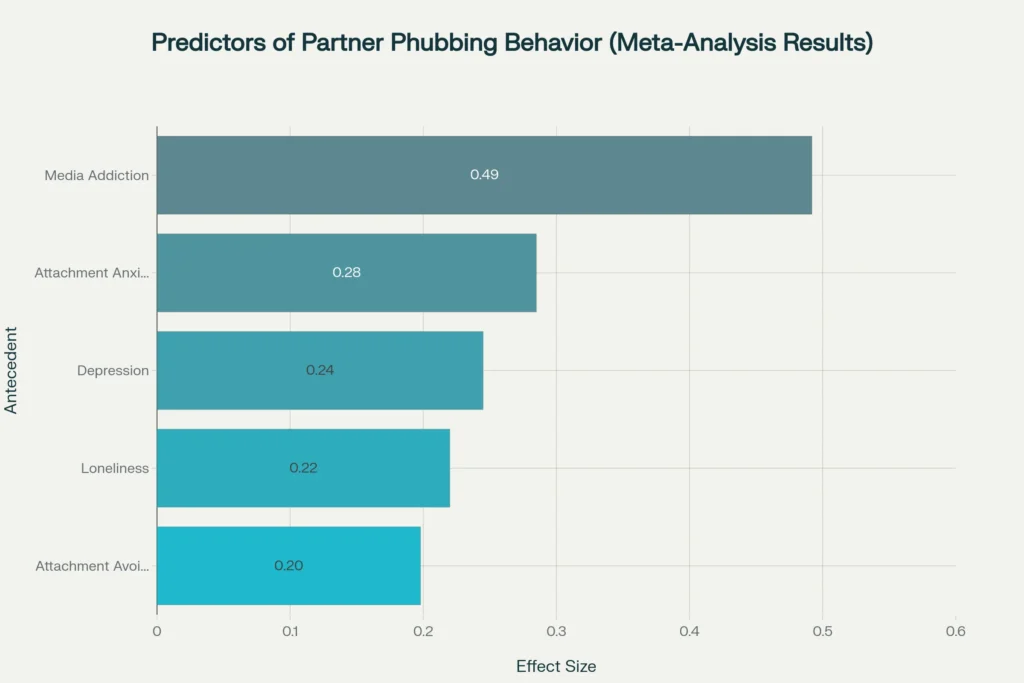
Trust Experiments
Lab studies show that phubbing’s effects are measurable. Trust scores dropped from 8.5 (no phubbing) to 8.16 (phubbed once) and down to 7.09 (phubbed three times) in a ten-minute conversation.
Need satisfaction fell from 4.11 out of 5 (attentive conversation) to 3.80 when phubbed multiple times. Mood also dropped sharply from 3.93 to 2.82.
How the Damage Happens
Loneliness plays a key role, as lower satisfaction increases loneliness, which drives more phubbing, creating a feedback loop. Perceived partner responsiveness is another factor, especially for women, as phubbing signals disinterest and lack of care.
Phones also threaten basic psychological needs, making people feel excluded or ignored.
It’s the Same Everywhere
Studies from Turkey, China, Belgium, and the U.S. all show similar results, with negative correlations between phubbing and relationship satisfaction ranging from -0.15 to -0.47.
The Growing Problem
The evidence is clear: phubbing is a relationship crisis hiding in plain sight. Nearly half of adults experience it, yet less than a quarter see it as a real problem. It chips away at satisfaction, intimacy, quality, responsiveness, and trust while fuelling conflict and jealousy.
The danger is that dissatisfaction leads to more phubbing, which worsens dissatisfaction, creating a downward spiral that couples may not see until it is too late. Even brief episodes lasting minutes can measurably harm trust and mood. Over time, daily patterns can cause far greater damage than people realise.
As smartphones become ever more woven into daily life, tackling phubbing is essential for relationship health. The data sends a clear warning: ignoring this quiet relationship killer risks destroying the very connection people are trying to keep alive.
